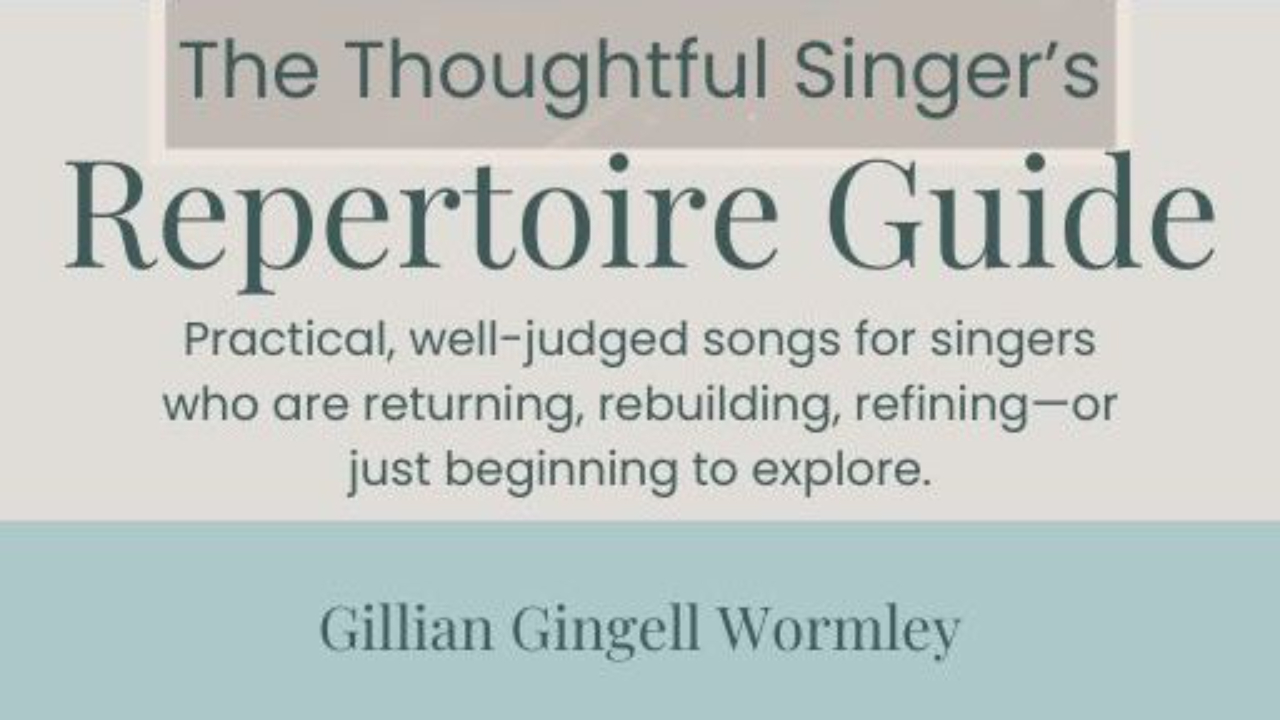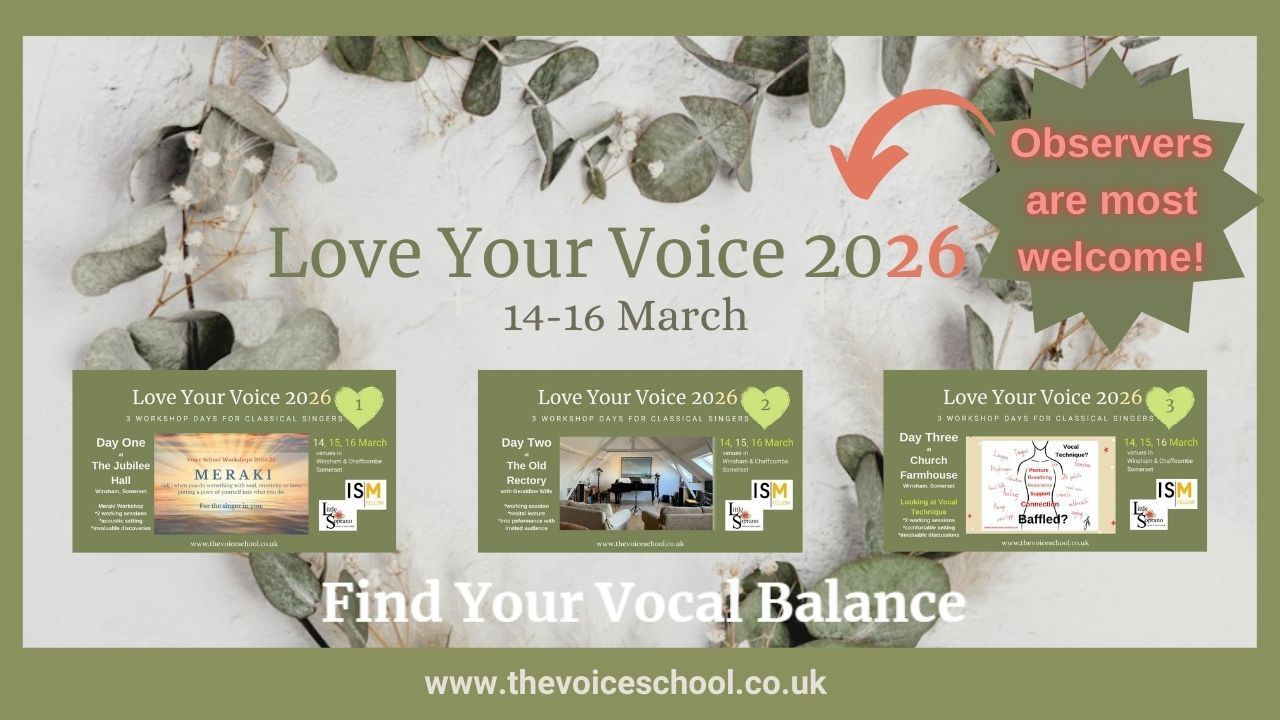Making you a better singer: the process.

I've been teaching singing and vocal technique for many years, yet it still surprises me (in a good way) just how much repetition there needs to be, addressing the same old pain points for so many different people no matter where they are on their learning journey.
The easiest and most rewarding teaching experience is undoubtedly with those open souls who are driven by the JOY of the whole thing and who never expect the learning curve to finish. It's an exciting and often unexpected ride!
The hardest students to reach are without fail those who imagine they have their goal in sight and once it is achieved, it's a given that they've mastered the skill. That's a tough nut to crack.
Their journey to the OK Plateau will only be a short one.
To learn well, we must surrender to the vulnerability of it all and forgive vocal imperfections BUT also be inquisitive, and questioning about the WHY.
Singers are, of course, buoyed along by the love of music, the quest to express and the innate physicality & pleasure born of the whole. And yet, at intermittent points in the journey, a little further down the learning track, there are usually points where we meet forks in the road, perhaps where things get a little harder - or perhaps we simply become more aware.
As we age and mature for example, so we as singers can imagine that it may become harder to produce good sound. That our bodies have 'issues' that have accumulated over time and are difficult to reverse. Or - that it is too late to learn - or indeed worst of all in my view, that there is little need to seek further learning! Surely, the joyful learning path never ends?
" Age is not an obstacle to such renewal. The possible connections in the human nervous system outnumber the stars in the galaxy. This virtually infinite network of possibility is the source of our almost unlimited capacity to learn or relearn. We only use a portion of these connections even in our prime."
Graham Lynne
But which route to take? Isn't it all a little too confusing?
We've shifted gears and maybe things (aka progress) get a little harder, more difficult to perceive. Perhaps the intrinsic nature of the voice we thought we knew begins to change, or an awareness of others' opinions develops and self-doubt and judgement begin to creep in. Whatever it might be, it's usually a defining moment in the relationship between the singer and the voice. Fight or flight.
What's your process? I'm interested to know. Here's one of my vocal technique infographics around a popular passaggio pain point, to help illustrate my meaning ... the old, struggling with the new.

The infographic speaks to those moments when you’re singing, everything is going smoothly until suddenly your voice does something weird. A ‘yodel’ or a ‘blip’ - a fluctuation in pitch/sound. It can feel embarrassing. We feel vulnerable. (A good analogy would be: when you’re driving - perhaps negotiating a speed change or a tricky corner - and you don’t quite change gear smoothly enough and the gearbox complains.)
But I'm here to tell you that's okay.
There’s just an imbalance going on somewhere in the mix. But no worries - there's a necessary component needed in all of this, and that's time. Beware of too much impatience to get the ‘thing’ done. Hasty, short-cut learning can lead to BAD muscle memory too. It is good to know the distinction.
An important part of the vocal learning process is ALLOWING it to unfold: building physical patterns and responses from the inside out, accessing the FEELING of, not just the DOING of.
The remedy lies in the reapplication of very basic vocal technique principles and internalising these learnings, little and often. Little by little the neurons in the brain form pathways which in time become more secure and dependable and eventually EASY to access.
This is neuroplasticity doing its thing.
There are 3 levels to the way the brain accepts information which in turn, forms new muscle ‘habits’. Tune in to a 5-minute mini-podcast on the subject and learn more about #1 chemical #2 structure and #3 function.
The primary driver of change in your brain is your behaviour.
But don't just take it from me. Here's mezzo-soprano Sophie talking about a recent experience where she felt she was on the edge of something exciting - a new feeling coming from the inside. You can sense the delight - and the inherent vulnerability - yet a willingness to repeatedly explore new possibilities. The best learning mindset!
"One of my 2021 goals is around knitting together different elements of my singing practice - physicality, imagination, technique, mental focus, trust, etc. - so that I can be freer in performance and express something deep about my interpretation of a piece. In the back of my mind this was a goal for the long road, a time in an uncertain future when we can all be together in person. But I was in for a surprise: during the Virtual Love Your Voice weekend, as we talked about performance and listened to each other's recordings with Gillian Wormley providing suggestions, something progressively unlocked in me, allowed me to be in the moment and communicate from deep inside. Gillian coached us very craftily and very sensitively throughout the whole weekend, offering a great flexibility of options in terms of what to present and how, while at the same, taking us to our edge, bringing us to a place where we could take some risks. The words that were a revelation for me were "taking responsibility" and, even scarier for me the notion of "taking command". These are words that are not part of my vocabulary so the weekend is even going beyond changing me as a singer!!"
One of the fundamental reasons I sing is that it keeps me sane. Quite literally grounded. Singing has always been and continues to be both my linchpin and my salvation. It may have been challenging to maintain the learning regime at tumultuous family times, but I always have returned to music - to singing - to restore my own sense of balance.
Find out more about how you can do this learning journey process thing too.
“In anything at all, perfection is finally attained not when there is no longer anything to add, but when there is no longer anything to take away when a body has been stripped down to its nakedness.”
Antoine de Saint-Exupéry
Curious for more? Click this link to sample my 15-minute vocal warm-up audio. Just a little something to get you started. Recommended.
Curious about singing basics? Let's get you started with the right learning tools.
Download my free need-to-know vocal essentials guide for singers, vocal technique principles simply explained.







